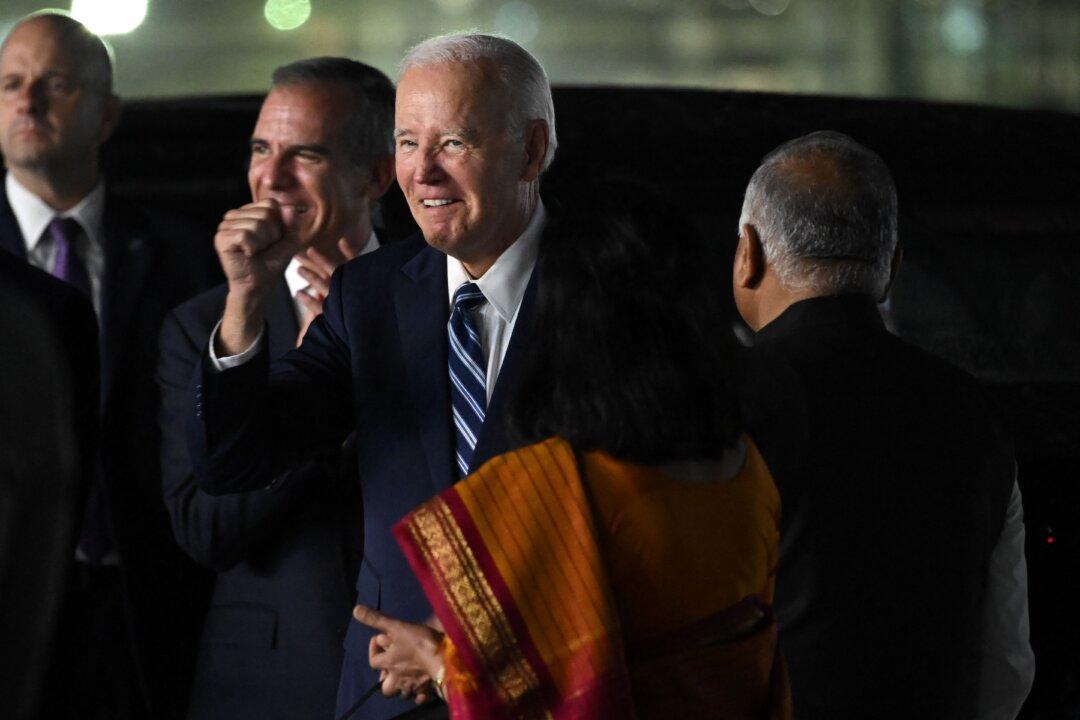NEW DELHI, India—President Joe Biden landed in India’s capital, New Delhi, on Friday at 6:46 p.m. local time to attend the Group of 20 (G20) meeting, which will bring together the leaders of the world’s top economies in New Delhi this weekend.
Soon after his arrival, the president held a bilateral meeting with Indian Prime Minister Narendra Modi to discuss a number of issues related to trade, supply chains, and critical and emerging technologies.





